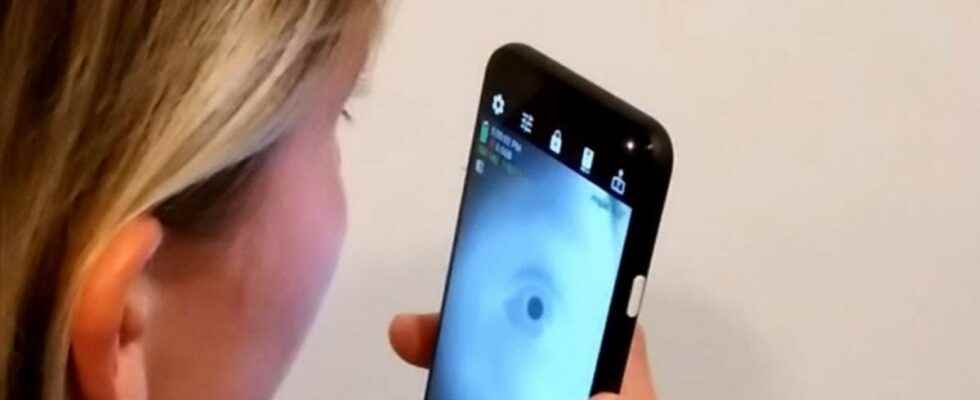Posted 8 hours ago,
Reading 2 mins.
In California, researchers have developed a completely revolutionary application. It would, through eye selfies, assess cognitive health and prevent certain neurological diseases.
Screening for diseases with a simple selfie! The idea seems surprising, but researchers at the University of California (San Diego) are convinced of the benefits of their project. According to them, the size of the pupil could provide essential information about a person’s neurological functions.
A camera that follows the dilations of the pupil
This new application, undoubtedly innovative, uses both an infrared camera – present in most smartphones today – and a “selfie camera”, to follow the evolution of the size of the pupil. The system then converts the pupil size of the infrared image to millimeter units.
Once these measurements have been taken, the scientists assess the patient’s cognitive state. The goal? Screen for Alzheimer’s disease, ADHD and other neurological diseases.
“Pupil size increases, for example, when a person performs a difficult cognitive task or hears an unexpected loud sound“, say the researchers.
The application would thus be able to calculate the size of the pupil in a very precise way – down to the sub-millimeter – and this, regardless of the color of the eyes.
“Although there is still a lot of work to be done, I am excited about the potential of this technology to take neurological screening out of clinical labs and into homes.“, confides Colin Barry, one of the authors of the study.
“We hope this test will open the door to further explorations of smartphone use to detect and monitor potential health issues.“, he adds.
This innovation may in particular make it possible to monitor people with mild cognitive impairment in order to determine their risk of Alzheimer’s disease.
An application suitable for the elderly
The researchers included various features in their app to make it easier to access – especially for older people.
“For us, one of the most important factors in technology development is to ensure that these solutions are usable by everyone. This includes people like the elderly who might not be used to using smartphones.“, explains Barry.
The only problem encountered: the test is rather expensive. Engineers at the Digital Health Lab, who work closely with the University of California, are now looking for a more affordable and simpler way to administer the test. Large-scale community screenings may soon be carried out.
“All of this research could have a huge impact on public health“, concludes Eric Granholm, professor of psychiatry at UC San Diego School of Medicine and director of the MHTech Center.
